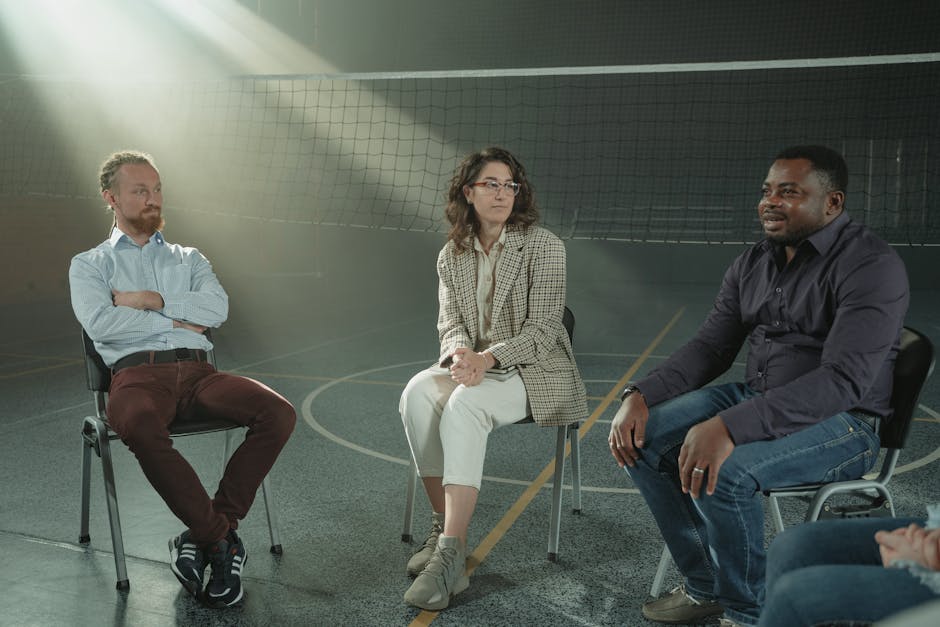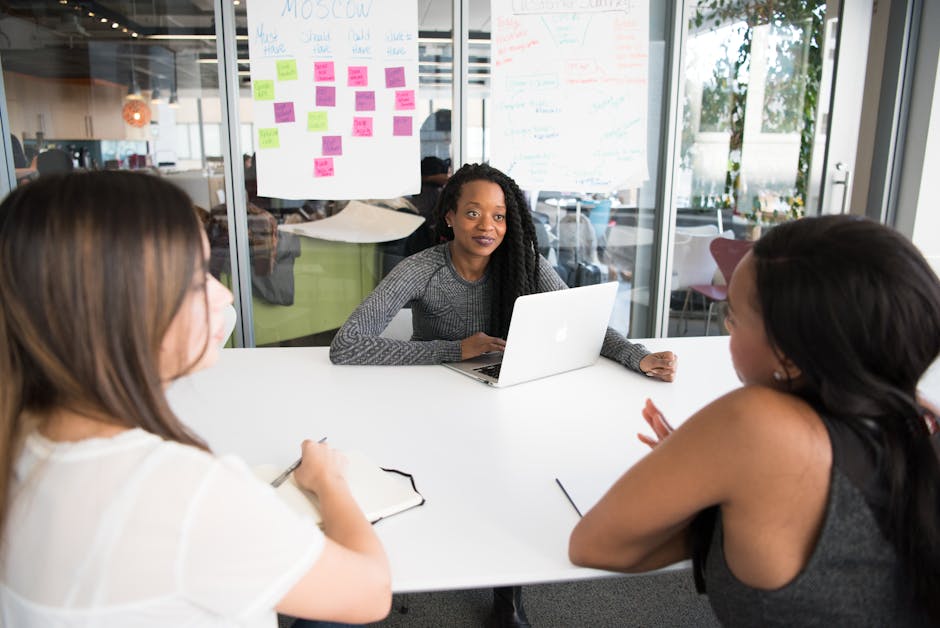

Group therapy facilitator training is essential for mental health practitioners aiming to improve their skills and support their clients in a group setting. If you're looking to understand the basics quickly and effectively:
Group therapy's power lies in fostering connection and healing collectively, making facilitator training an invaluable asset for therapists like you, who seek to expand their services without overwhelming themselves.

Group therapy facilitation is more than just bringing people together. It's about creating a space where participants feel heard, understood, and supported. Let's explore some key elements that make this possible.
Active listening is at the heart of effective group therapy facilitation. It's not just about hearing words but understanding the emotions and intentions behind them. Facilitators should:
This builds trust and encourages participants to open up, making the group more cohesive.

Groups are living, breathing entities with their own dynamics. Managing these dynamics is crucial for a facilitator. Here's how you can do it:

Open communication fosters an environment where participants feel safe to share. Facilitators should:
By promoting open communication, facilitators help build a supportive community where members can explore their challenges and triumphs together.
Consider Shira Sameroff, LCSW, a seasoned group work expert. In her sessions, she encourages active listening by having participants reflect on each other's stories. This technique not only improves understanding but also builds empathy within the group. Her approach exemplifies how effective facilitation can transform individual experiences into collective healing.
By mastering these elements, facilitators can lead successful group therapy sessions that promote connection, healing, and personal growth.
To become a skilled group therapy facilitator, a solid educational foundation is essential. Let's explore the typical educational paths and the guidance needed to excel in this field.
Associate Degree
An associate degree in psychology, social work, or a related field is often the starting point for aspiring facilitators. This degree provides a basic understanding of human behavior, mental health concepts, and introductory counseling techniques. It's a stepping stone that prepares you for further education and specialized training.
Bachelor's Degree
Most group therapy facilitators pursue a bachelor's degree to deepen their knowledge. A degree in psychology, counseling, or social work offers a comprehensive curriculum that covers:
This level of education equips facilitators with the skills needed to understand group dynamics and individual needs.
Education is just one part of the equation. Practical experience and mentorship are invaluable in developing facilitation skills.
Internships and Practicums
Participating in internships or practicums allows aspiring facilitators to observe seasoned professionals in action. This hands-on experience is crucial for understanding the nuances of group dynamics and the facilitator's role.
Mentorship
Guidance from experienced facilitators, like Shira Sameroff, LCSW, can be transformative. Mentors provide insights into effective strategies, offer feedback, and help steer challenges. They can also introduce you to practical tools and techniques that improve your facilitation skills.
Even after formal education, continual learning is vital. Engaging in workshops, attending conferences, and seeking additional certifications, such as those offered by the Group Therapy Training Program (GTTP), keeps facilitators updated on the latest practices and trends.
By combining formal education with practical experience and ongoing guidance, aspiring facilitators can develop the skills needed to lead impactful group therapy sessions. This comprehensive approach ensures they are well-prepared to support participants in their journey towards healing and growth.
Facilitating group therapy effectively requires a blend of skills and techniques. Here, we'll explore some key methods that can help facilitators create a supportive and productive group environment.
Active listening is a cornerstone of successful group therapy facilitation. It involves fully concentrating, understanding, and responding to participants. Active listening:
By practicing active listening, facilitators can better understand each participant’s perspective and create a more inclusive atmosphere.
Establishing clear boundaries is essential in group therapy to ensure a safe and respectful environment. Boundaries help define acceptable behavior and maintain focus during sessions. Effective boundary-setting involves:
Boundaries not only protect group members but also empower them to engage more fully in the therapeutic process.
Skill practice is crucial for helping participants apply what they learn in group therapy to real-life situations. Facilitators can incorporate skill-building exercises that:
Incorporating skill practice into group therapy sessions improves participants' ability to manage challenges outside the therapy setting.
By mastering these techniques, group therapy facilitators can create a dynamic and supportive environment that fosters healing and growth for all participants. These strategies, combined with a solid educational foundation and ongoing professional development, prepare facilitators to lead effective and impactful group sessions.
Becoming a skilled group therapy facilitator involves more than just understanding the basics. It requires comprehensive training programs that equip you with the necessary skills and knowledge. Let's explore some key components of these programs.
Evidence-based workshops provide facilitators with practical tools and strategies grounded in research. These workshops often involve hands-on activities where participants learn by doing. As Pete Nielsen, CEO of CCAPP, noted, "Participants learned through doing, just as patients should within the therapy session." This approach not only boosts confidence but also improves the facilitator's ability to engage group members effectively.
Continuing Education Units (CEUs) are vital for facilitators who want to stay current with the latest practices and theories in group therapy. Programs like those offered by the Institute for the Advancement of Group Therapy deliver CEU trainings designed to improve therapist efficacy through evidence-based interventions. These trainings cover a wide range of topics, such as:
CEU trainings ensure facilitators are equipped to handle diverse group dynamics and improve therapeutic outcomes.
The Group Therapy Training Program (GTTP) is a year-long course that offers an in-depth study of group therapy facilitation. Located in the San Francisco Bay Area, GTTP combines psychodynamic and group-as-a-whole orientations, providing a rich immersion experience. Participants engage in:
GTTP not only deepens a clinician's work with individuals but also improves their practice by weaving theory with practical application. Participants can apply training hours toward becoming a Certified Group Psychotherapist (CGP).
By participating in these comprehensive training programs, aspiring facilitators gain the skills and confidence needed to lead impactful group therapy sessions. These programs, with their blend of theory and practice, prepare facilitators to create environments that foster healing and growth for all group members.
Group therapy facilitators typically need a degree in a mental health-related field, such as psychology, counseling, or social work. Additional certifications, like the Group Therapy Expert (CGTE) certification, can further enhance a facilitator's skills and credibility. These qualifications help facilitators understand therapeutic techniques and human behavior, essential for guiding group therapy sessions effectively.
Facilitating a group therapy session involves careful planning, guiding, and managing group dynamics. Facilitators should start by outlining clear goals and structure for the session to maintain focus. During the session, they should encourage participation, ensure all members feel heard, and address any conflicts that arise. Creating a safe and supportive environment is key to fostering open communication and a productive group atmosphere.
Group therapy facilitator training offers many benefits, including improved patient engagement and therapeutic outcomes. Training provides facilitators with strategies to motivate and involve participants, leading to more dynamic and effective sessions. It also enhances facilitators' ability to address diverse group member needs. Continuous professional development through training keeps facilitators up to date with the latest practices, helping them maintain high standards of care and improve the overall group experience.
MentalHappy is revolutionizing mental health support through its innovative digital platform. By offering HIPAA-compliant privacy, streamlined group management tools, and AI-driven health assessments, it empowers therapists and facilitators to deliver personalized, scalable group therapy. The user-friendly interface, available on iOS and Android, ensures accessibility for everyone, regardless of location or tech skills.
As mental health needs rise and professional shortages persist, MentalHappy helps bridge these gaps, improving the skills of facilitators and enriching the therapeutic experience for participants. With its focus on accessibility and training, MentalHappy is shaping a more effective, inclusive approach to mental health care. For more information, visit our resources page and discover how MentalHappy can enhance your practice.
